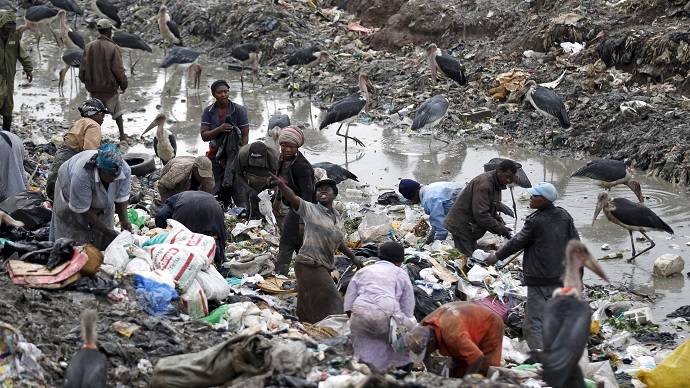400mn people have no access to essential health services – WHO

More than 400 million people across the world live without access to essential health services, while millions are being forced into poverty as their governments are unable to provide adequate healthcare, a new study by the World Bank and WHO found.
The authors of the 98-page report titled, ‘Tracking Universal Health Coverage,’ claims to be the first study to measure progress towards universal health by assessing health service exposure and how much countries spend on health care.
The world's most disadvantaged people are missing out on even the most basic health services http://t.co/l17H04EeZZ#UHC
— WHO (@WHO) June 12, 2015
Covering 37 nations between 2002 and 2012, the report focused on people’s ability to gain access to essential health services by looking at seven components: family planning, antenatal care, skilled birth attendance, child immunization, antiretroviral therapy, tuberculosis treatment, and access to clean water and sanitation.
antiretroviral therapy, tuberculosis treatment, and access to clean water and sanitation.antiretroviral therapy, tuberculosis treatment, and access to clean water and sanitation.
Researchers found that over 400 million people lacked access to at least one of these essential services.
“This report is a wakeup call: It shows that we’re a long way from achieving universal health coverage. We must expand access to health and protect the poorest from health expenses that are causing them severe financial hardship,” said Dr Tim Evans, Senior Director of Health, Nutrition and Population at the World Bank Group.
READ MORE: ‘Slow and insufficient’: WHO admits failing to respond to Ebola crisis
The study also revealed that 17 percent of the world’s population spanning across 37 countries, are being driven to live in extreme poverty on $2 per day because they had to cover all or a significant portion of their health treatment bills.
“These high levels of impoverishment, which happen when poor people have to pay out of pocket for their own emergency health care, pose a major threat to the goal of eliminating extreme poverty,” says Dr Kaushik Basu, Senior Vice President and Chief Economist at the World Bank Group. “As we transition to a post-2015 development era, we must act on these findings, or the world’s poor risk being left behind.”
To reverse the figures, the authors recommend governments strive to achieve a health coverage that reached a minimum of 80 percent of the population.












